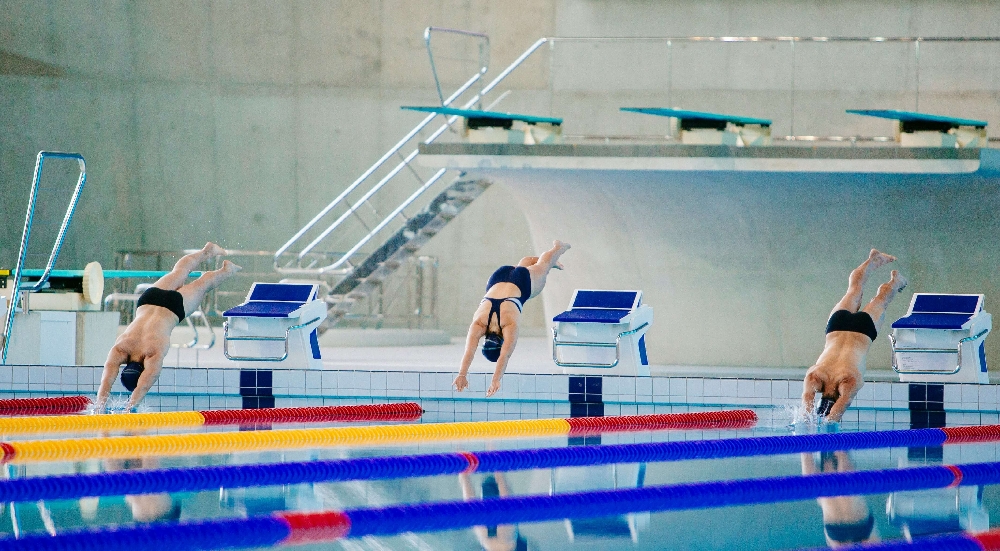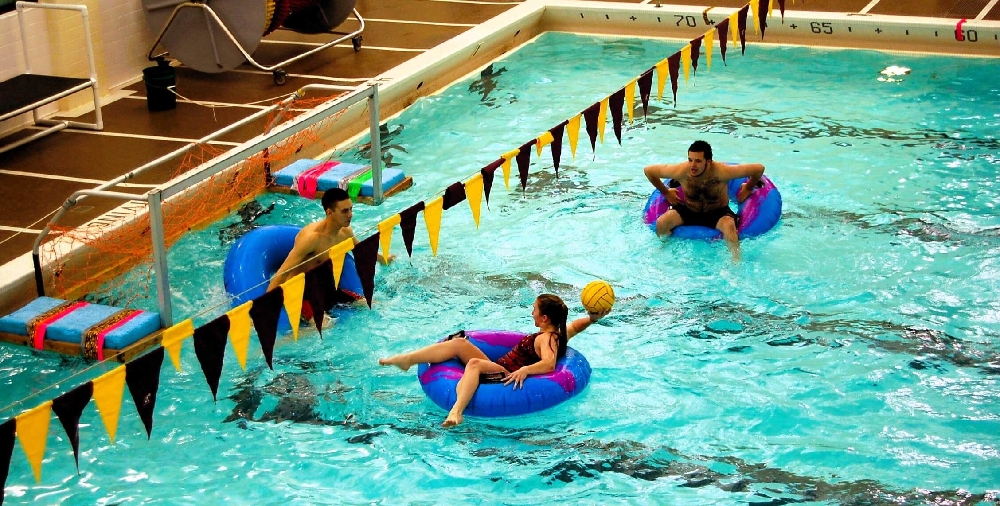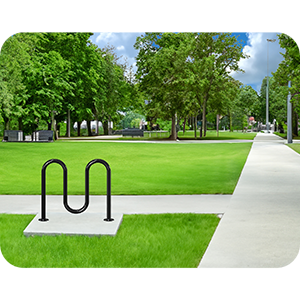Colleges around the country are maximizing their pool facilities to provide more than just a place for students to swim competitively. By expanding their offerings to recreational swimmers as well, universities create a win-win situation: they encourage student exercise and wellness and increase facility use.
Swimming is popular as both exercise and sport because it offers a comprehensive, low-impact workout that improves both body and soul. Swimming – as well as other recreational water activities that accommodate a wide range of abilities – offers benefits for everyone:
⦁ A full-body workout: Swimming engages almost all muscle groups through different swim strokes and helps with muscle toning and strength development.
⦁ Increased heart rate and improved cardiovascular fitness: As an aerobic activity, regular swimming can reduce the risk of heart disease, stroke, and other chronic conditions while boosting endurance.
⦁ Low-impact exercise that’s easy on the joints: The natural buoyancy of water supports the body, reducing stress and impact on joints by up to 90% compared to land exercises like running.
⦁ Diverse activities for all fitness and skill levels: Swimming and in-water activities can be adapted for all fitness and skill levels, from beginners to top athletes.
⦁ Stress relief with calming effects: Being in water has a calming effect, and exercise like swimming and water aerobics promotes the release of mood-enhancing hormones.
AQUATIC ACTIVITIES FOR ATHLETES AND REC STUDENTS ALIKE
Competitive swimming continues to make waves at the collegiate level. According to Scolarshipstats.com, swimming ranks among the top physical activities for both male and female college students. Today, over 11,600 men and 15,100 women compete in varsity swimming across 663 U.S. colleges.
And while competitive swimming is a large part of higher institutions, recreational activities are also in demand. As a result, campuses are expanding their aquatic offerings and modernizing their facilities to create student recreation programs that provide wellness activities, social engagement, and physical fitness.

University pools, when designed to successfully support both competitive sport and recreational activities, can become a vital element of campus life. Let’s take a look at the advantages of pool activity expansion across campuses:
Competitive Facility Benefits
University pools designed for competition attract top athletes and enable colleges to host regional or national meets, raising the institution’s sporting profile and overall exposure. Features such as bulkheads (platforms that divide a pool into separate sections) and calibrated racecourse measurements enable colleges to host both short- and long-course events, maximizing their physical space and return on investment.
Competitive swim programs also have a positive impact on fellow students and faculty. Watching healthy competition between rival schools, rooting for their team and celebrating wins help to strengthen team spirit and campus pride. Even alumni enjoy the thrill of watching their alma mater team compete.

Recreational Facility Benefits
College recreational pool offerings open up opportunities for non-competitive athletes and students looking for extracurricular activities. Campus pools can serve as a great place to convene with others while enjoying low-impact activities that boost their physical, mental and social wellbeing.
Aquatic exercise offers cross-training, stress management and injury rehabilitation with diverse intramural programs such as in-water aerobics, aquatic yoga and pool basketball. Some universities are even incorporating log-rolling competitions and scuba classes into their recreational pool programs to attract and engage a wide range of students.
Campus pools can serve as community hubs, fostering new friendships and stronger social bonds through intramural sports, aquatic fitness classes, and club teams. Studies show that student participation in aquatic programs is strongly linked to higher self-confidence, improved communication and a stronger sense of social support.

Central Michigan University Inner Tube Water Polo
COLLEGE POOLS PROVIDE BETTER OVERALL OUTCOMES
A collegiate pool facility helps draw top athletic talent, build a competitive sports program and put a university in the spotlight. But beyond the recognition and financial advantages, campus pools make a positive impact on the students. In a National Intramural-Recreational Sports Association (NIRSA) survey of more than 33,500 college students, 74% said campus recreation facilities – including aquatics – influenced their decision to continue attending their college or university. Furthermore, those who participated in aquatic facilities experienced higher levels of overall retention, academic success, and sense of belonging on campus.
From improved fitness and stress relief to social interaction and friendship-building, campus pools serve as important physical and social hubs to help students get through the challenges college life can bring. More universities and college campuses should take the plunge and make their pool a better, more inclusive facility with expanded activities for their students.











































_936.png)






Leave your comment